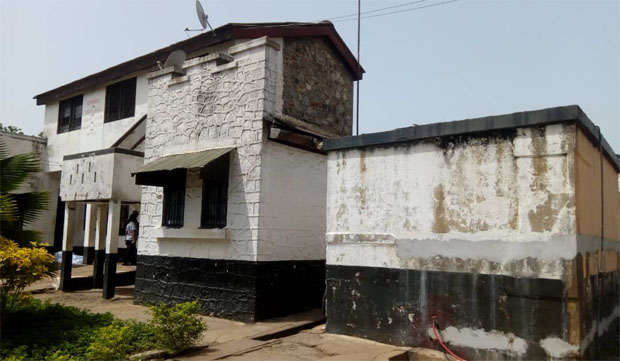In time past, one may view prisons as places for reforming wayward members of society.
Today, the same probably cannot be said of prisons in Ghana.
A wind of change appears to be blowing across some prisons in Ghana and prisoners are today reforming prison officers rather than being reformed.
This leaves much to be desired but it is the reality at the Akuse Local Prison and perhaps some other prisons across Ghana.
The Akuse Local Prison, established in 1911 in the then Gold Coast, is located in the Lower Manya Krobo Municipality of the Eastern Region.
It has four mandates including safe custody, provision of basic needs of inmates and most importantly the reformation of inmates.
Sadly, the officers who are to reform the inmates, according to DSP Darko Henry, are less educated than most inmates.
As a result, the inmates including armed robbers, are rather helping to reform the officers.
The inmate population as at April 22, 2019 when DGN Online visited the Prison, stood at 225, with seven being women.
DSP Henry is the Chaplin and Counselor at the Akuse Local Prison and told DGN Online that he himself have had the benefit of being reformed by the inmates even though he was supposed to reform them.
He says “most of them (inmates) are enlightened than us and instead of us reforming them, they are rather reforming us.”
He says some of the inmates taught him economics and prepared him to write his O Level and A Level, aiding him to progress to the university.
According to him, currently there were about 20 armed robbers or so at the prison.
He stressed “the prisoners taught me economics and I was able to write my ‘A’ Level and ‘O’ Level and I was able to pass and go to the University.”
He says ensuring the reformation of inmates requires persons with high level of education or knowledge in social sciences.
Sadly, the Prison does not have such persons as psychologists to help with the reformation exercise.
In time past, he says, personnel of the Social Welfare Department were assigned to carry out the reformation exercise at the Prison.
However, according to him, in recent times, staff of the Social Welfare Department have stopped offering such services.
He says it was demoralizing to see prisoners reforming officers at the Prison.
Changing the status quo would require investment in higher education for prison officers.
BY Melvin Tarlue


